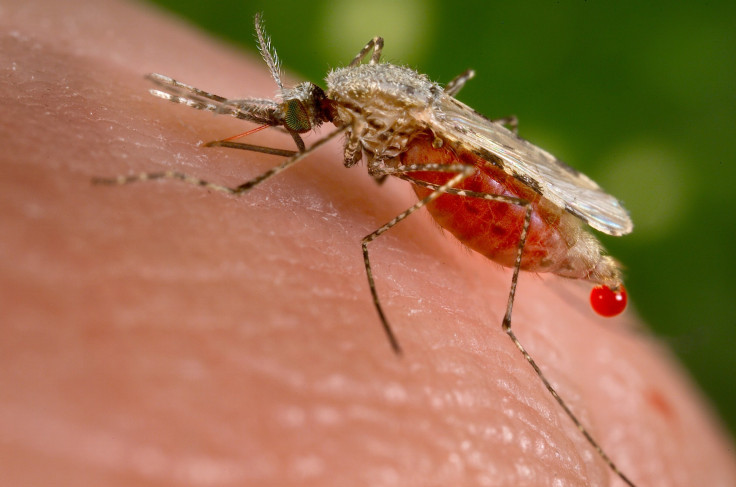Mosquitoes Become Insecticide-Resistant Because Of Toxin-Sensing Legs, Study Finds

KEY POINTS
- Bed nets are key to mosquito control in Malaria-affected countries
- Because mosquitoes are becoming insecticide-resistant, bed nets are becoming less effective
- Researchers of a new study found a completely new way by which mosquitoes become resistant to insecticides
- The binding protein SAP2 found in their legs affects the mosquitoes' susceptibility or resistance to a widely used insecticide
- Idenifying a new synergist may restore the mosquitoes' susceptibility
Malaria affects millions of people worldwide, and the mosquitoes that carry the disease are becoming immune to the insecticides that were previously effective at killing them.
In a new study published in the journal Nature, researchers identified a new way by which the mosquitoes become insecticide-resistant, opening a way to make them susceptible again.
Insecticide Resistant Mosquitoes
For a new study, researchers from the Liverpool School of Tropical Medicine examined Anopheles gambiae and Anopheles coluzzi, two major malaria-carrying mosquito species in West Africa.
Interestingly, the researchers found elevated levels of the leg-based binding protein SAP2 in resistant mosquito populations, and the elevation further increased after coming into contact with pyrethroids, a type of insecticide widely used on bed nets.
Further, the insecticide-resistant mosquitoes became susceptible to the insecticide again when the researchers reduced the levels of SAP2 by partially silencing the gene. On the other hand, when the researchers expressed SAP2 at higher levels, the previously susceptible mosquitoes became pyrethroid-resistant.
Simply put, the researchers found that mosquitoes' susceptibility or resistance to pyrethroids is affected by the levels of SAP2 in their legs.
This is problematic because, in West African countries such as Cameroon, Guinea and Burkina Faso, bed nets treated with pyrethroids are widely used to prevent the spread of malaria. But because of the increased insecticide resistance among malaria-carrying mosquitoes, the efficacy of the bed nets are significantly reduced.
Restoring Mosquito Susceptibility
Because of the mosquitoes increasing pyrethroid-resistance, insecticide beds treated with the synergist piperolyn butoxide (PBO) have also been introduced. PBO specifically targets the resistance mechanisms that cause cycochrome P450s, and with the researchers’ discovery of the new way in which mosquitoes become insecticide-resistant, perhaps new synergists that can restore mosquitoes susceptibility can be identified.
“The protein, which is based in the legs, comes into direct contact with the insecticide as the insect lands on the net, making it an excellent potential target for future additives to nets to overcome this potent resistance mechanism,” first author Dr. Victoria Ingham said.
This way, instead of finding new chemicals to kill the mosquitoes, it would be possible to reverse their resistance to make them susceptible to previously effective insecticides once again.
“Long-lasting insecticide treated bed nets remain one of the key interventions in malaria control,” senior author Professor Hillary Ranson said. “It is vital that we understand and mitigate resistance within mosquito populations in order to ensure that the dramatic reductions in disease rates in previous decades are not reversed.”
© Copyright IBTimes 2024. All rights reserved.






















